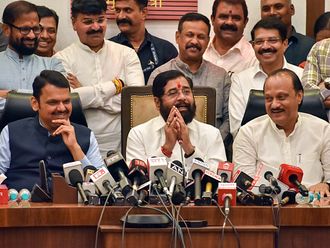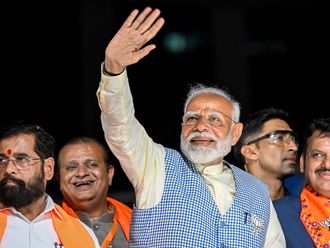Our education system takes its cue from the various avatars of Industrial Revolution that started off with a focus on steam and water, and gradually moved to electricity and mass production in the second phase. The focus then shifted to electronics, IT systems and automation during the third stage of Industrial Revolution. Looking at the advent of this revolution, our policymakers formulated a mandate for the education system — one with a focus largely on science, technology, engineering and mathematics (STEM). This was done to link our education goals with the needs of the workforce.
This interdisciplinary approach to learning mostly amalgamated academic concepts with real-world lessons since students could apply the concepts of science, technology, engineering and mathematics to real-life contexts, making connections between school, work, and the world at large while preparing them to face the challenges of the world of tomorrow.
However, the world has moved on. Now we are at the threshold of the fourth Industrial Revolution and the question of readiness is a deeply disturbing one. A blend of big data, robotics and automation, Artificial Intelligence, advanced analytics, internet of Things (IoT) and process digitisation across the business value chain are the salient features of this revolution that require, among other things, a shift in mindset paradigms. A lack of the required skill-sets has led to the fear of losing jobs due to a preponderance of robots and automation.
The answer, though not simple, is definitely workable. Our education system has to devise a strategy to upgrade the skills and competencies of the workforce to counter this seemingly catastrophic situation. The educational landscape is faced with an even greater challenge. As Richard Riley, former United States secretary of education under former president Bill Clinton, noted years ago: “We are currently preparing students for jobs that don’t yet exist ... using technologies that haven’t yet been invented ... in order to solve problems we don’t even know are problems yet.”
It is not enough that our educators ensure ‘what’ today’s students are learning in schools and colleges. Our focus should be on ‘how’ they learn it. This is important because these skills will prepare them for a future that is uncertain. This was the rationale for the introduction of STEAM (science, technology, engineering, arts and mathematics) approach to learning. Art was a discipline that was mostly undervalued in education with doctors and engineers being the preferred career choices and in fact still primarily the dream career of most parents in the Indian subcontinent. STEAM approach brings art out of its secluded corners into the limelight as it shares the stage equally with all the other disciplines.
The stigma of it not being intellectually challenging is fading and it is being recognised as a vital component to design thinking and seek creative and innovative solutions to resolve global issues. Integration of STEAM in classrooms has multiple benefits: It leads to innovation and helps develop cross curricular strategies of teaching such as utilising digital tools, giving students multiple options for presenting what they learn, encouraging students to be curious and experiment, focusing on inquiry-based learning. It also helps students to acquire the relevant skill-sets that are highly sought-after in the 21st-century job market.
Several studies have revealed that the STEAM approach addresses the debate on differentiation in the classrooms as it provides students with different learning styles and backgrounds besides ample opportunities to learn in the way that is best suited for them. It is true that STEAM learning may not be the perfect answer to the dilemmas of 21st century education, but it encompasses a plethora of positives such as creativity, thinking out of the box, hands-on learning, confidence, collaboration and above all — it develops innovative mindsets with the ability to critically analyse and problem-solve that can help create thinking future citizens. Only time will tell whether such a generation will be better-equipped to handle the multi-thronged challenges that come their way in the future.
Dr Farooq Ahmad Wasil is a noted educationist. He is the global head of Affordable Schools, GEMS Education.












